Palavras-chave:
Pedagogía de la investigación, pensamiento epistémico, investigación dialógica, constructivismo, proceso investigativoResumo
El artículo propone una reflexión pedagógica de la investigación, se abordan los aspectos tales como la relación de la investigación con la producción y reproducción del conocimiento desde un aspecto metodológico; en segundo lugar la manera en que hegemónicamente se reproduce una forma de hacer investigación operacional, y las posibilidades dialógicas que se desarrollan con un pensamiento crítico o epistémico. Por último, con base en el pensamiento dialógico se presentan, como propuesta, las implicaciones de la construcción social y colaborativa de la investigación como una forma pedagógica que considera el proceso investigativo como un espacio social colaborativo de experimentación. De esto se infiere que con la pedagogía constructivista de la investigación se presenta como un proceso dialógico centrado en las actividades prácticas y organizadas en un contexto determinado para un objetivo común.
Downloads
Referências
Barab Sasha y Squire K. “Design-based research: Putting a Stake in the Ground”. Journal of the Learning Sciences. 13, 1 (2004): 1-14.
Cerda, Hugo. Los elementos de la investigación: cómo reconocerlos, diseñarlos y construirlos. Bogotá: Magisterio. 2011.
Collins Allan; Joseph Diana y Bielaczyc Katerine. “Design Research: Theoretical and Methodological Issues”. The Journal of the Learning Sciences, 13, 1, Design-Based Research: Clarifying the Terms. Introduction to the Learning Sciences Methodology Strand (2004): 15-42.
Daniels, Harry. Vygotsky y la pedagogía. Barcelona: Paidós, 2003.
Duhalde, Miguel Ángel (Coord.). Investigación educativa y trabajo en red. Debates y proyecciones Vol. I. Buenos Aíres: Centro de Publicaciones Educativas y Material Didáctico, 2009.
Elías, Norbert. Sociología fundamental. Barcelona: Gedisa, 1970/2008.
Engeström, Yrjö. “Activity Theory and Learning at Work”. En: The SAGE handbook of workplace learning. (SAGE Publications, 2010)
Engeström, Yrjö. « Théorie de l’Activité et Management ». Management & Avenir 42 (2011): 170-182.
Engeström, Yrjö. Learning by expanding: An activity theoretical approach to developmental research. Helsinki: Orienta-Konsultit, 1987.
Fals Borda, Orlando. “Cómo investigar la realidad para transformarla” (1975) En: Una sociología sentipensante para América Latina. Bogotá: Siglo del Hombre. 2009.
Fals Borda, Orlando. “La ciencia y el pueblo: nuevas reflexiones” (1980) En: La investigación-acción participativa: Inicios y desarrollos. Editorial popular, 1992.
Ghiso, Alfredo. “Formar en investigación desde la perspectiva de la educación popular”. En: Entretejidos de la educación popular en Colombia. Bogotá: CEAAL. 2013.
Mcmillan, James y Schumacher, Sally. Investigación educativa. Una introducción conceptual. Madrid: Pearson. 2005.
Onrubia, Javier. “Enseñar: Crear zonas de desarrollo próximo e intervenir en ellas”. En: El constructivismo en el aula. Barcelona: Editorial Grao, 2007.
Popper, Karl. La lógica de la investigación científica. (Madrid: Editorial Tecnos. 1962/1980): 52.
Rojas-Betancur, Mauricio y Méndez-Villamizar, Raquel. “Cómo enseñar a investigar. Un reto para la pedagogía universitaria” Educación y Educadores 16. 1 (2013): 95-108.
Sandoval William y Bell Philip. “Design-based research methods for studying learning in context”. Educational Psychologist, 39, 4 (2004): 199-201.
Scardamalia, Marlene y Bereiter, Carl. “Knwoledge Bulding” En: Encyclopedia of Education. New York: MacMillan Reference. 2003.
Trejo, Ma. del Rosario y García, Fernando. “Pedagogía de la investigación. Revista de la Asociación Mexicana de Metodología de la Ciencia y de la Investigación”, 1, no. 1 (2009):135-141.
Vygotsky, Lev. Mind in society: The development of higher psychological processes. Cambridge: Harvard University Press, 1978.
Zemelman, Hugo. Voluntad de conocer: El sujeto y su pensamiento en el paradigma crítico. México: Anthropos Editorial, 2005.




